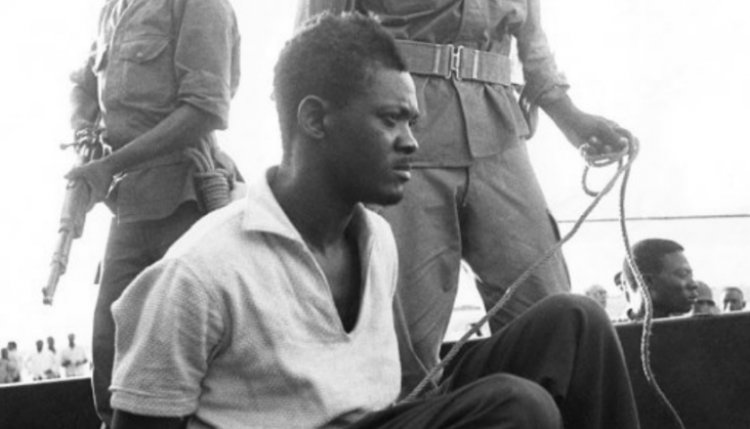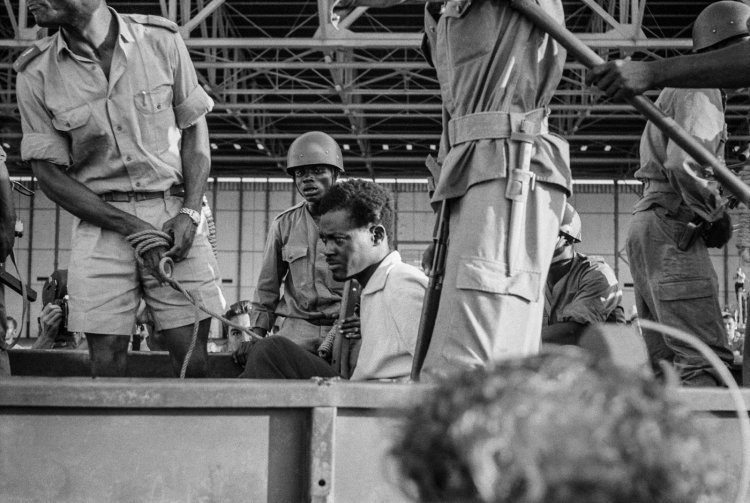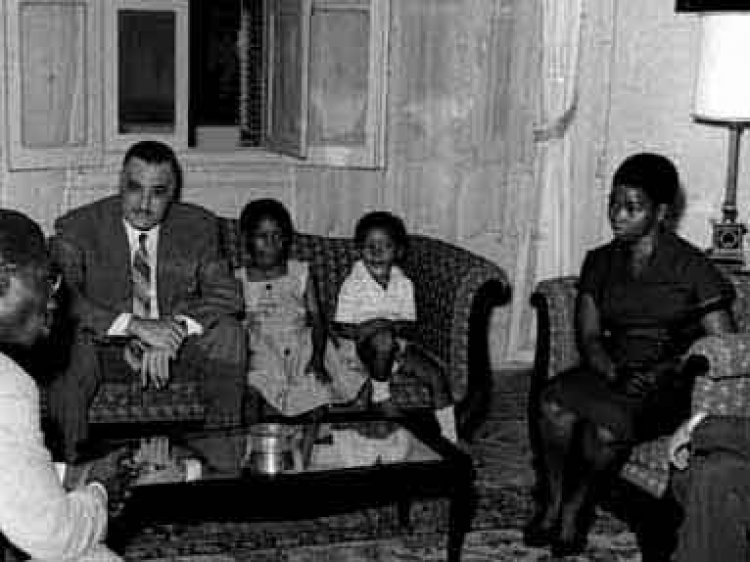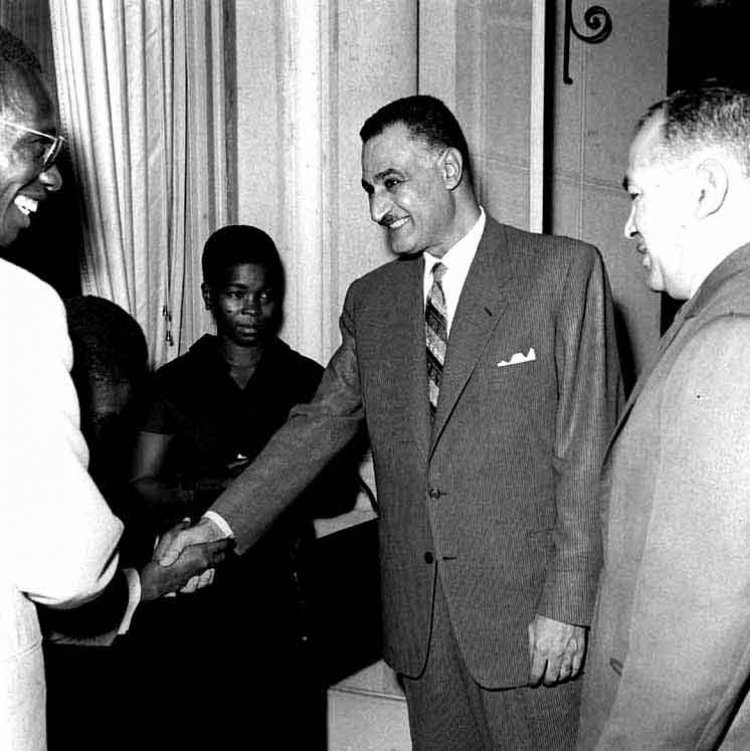One day...Abdel Nasser receives the news of Lumumba's murder and confirms it to the world

February 12 ,1961.. Abdel Nasser confirms Lumumba's murder to the world and announces the status of the African leader's sons under his auspices
writes: Saeed Al Shahat
“He was handcuffed, his guards pushed him and beat him with the heels of their rifles, so he falls to the ground and then they pulled him by his hair, to stand up, so that he was beaten and kicked again, but Lumumba’s looks and facial features reflected all the meanings of defiance, glory and pride.”
This is how Mohamed Fayeq describes, in his book “Abdel Nasser and the African Revolution,” the epilogue of the life of the African leader, Patrice Lumumba, the leader of the national movement in the Congo, and the head of its government. “Fayeq” was the state minister for African affairs in the presidency of the Republic, and he was from those who worked closely with “Lumumba”, He mentions in his book what he saw on television while he was being taken to his death on January 17, 1961, when a photographer was able to film this tragedy.
Lumumba was the leader of his country's struggle to liberate it from the control of Belgian colony, which committed crimes, including, as Fayeq recalls: “In January 1960, when the independence of the Congo was decided, there was no one of the patriots holding a position in the government, and there were no significant numbers among the Africans who were university graduates, and there was not a single patriot with the rank of officer in the Congolese army.
"Lumumba" led the struggle to change this equation, with the support of Egypt and his admiration for Abdel Nasser, and founded the "Congolese National Movement" party, also he won the 1960 elections, and became the Prime Minister , but Belgium and the The U.S. Intelligence Community were determined to abort his experiment. At that time, Dr. Murad Ghalib was an ambassador to Egypt; he was in the Congo, and recorded his testimony in his memoirs “With Abdel Nasser and Sadat.” He says: “The Democratic Republic of the Congo, Kasa-Vubu, removed Lumumba from his position as the Prime Minister, and Lumumba responded to him by not recognizing him as the President, and the state of chaos in the country began with Tshombe, the governor of Katanga, announcing his separation. And it was the richest region in the country, and the majority of Belgian companies, especially those working in the mines, were concentrated in it, and an elaborate process began to besiege Lumumba.

Ghalib adds: “Lumumba was able to escape from the collar of the siege imposed around him, and he fled to a house in the center of the capital, Leopoldville, and he sent me a letter informing me of his location, and I reached his hideout, and found his condition to be very upsetting, and his eyes were distorted.” Ghalib confirms that he wrote a telegram immediately and sent it to “Abdel Nasser”, in which he informed him that “Lumumba” was alive, contrary to the news circulated about his death, and that he wanted to transfer his wife and sons to Egypt, and that he had become the only source of his news.
Ghalib received approval for Lumumba’s request, and he began to develop a plan to put his sons to flight, and its hero was Abdulaziz Ishaq, the advisor at the Egyptian embassy who had European features, as it was registered in his passport that he was married to a Congolese woman, and that he was taking his sons with him to travel to Lisbon, and the process was based on waiting for its implementation while the Sudanese battalion in the United Nations forces took control of the airport.
“Ghalib” states: “The instructions for Ishaq were, to ignore the first, second, and third call to board the plane traveling to Lisbon, and not appear until seconds before taking off with his family, and run with them to catch up with it in the last seconds, so that he puts the airport workers in a position to help them.”
The sons were successfully put to flight, and Lumumba continued to fight his resistance, until his assassination on January 17, 1961, according to Muhammad Hassanein Heikal in his book “The Years of Boiling”. Also adding that “Abdel Nasser” received intel on the night of February 12th, 1961, just like today, confirming Lumumba’s execution by shooting after his arrest, and that the one who arrested him was Colonel Mobutu, the commander of his forces, and later the President, and he handed him over on the same day to his enemy “Chombi” in Katanga.

Heikal confirms that it was Abdel Nasser who officially confirmed to the world the news of Lumumba's death, and announced that he was placing his family under the protection of the United Arab Republic. Mrs. Pauline, Lumumba's wife, wrote a letter to Abdel Nasser, in which she said: “I am a woman who has not learned because The Belgian colonialists denied us the opportunity to obtain it, but with my simple realization I understand, like every patriotic woman in Africa, that you are the most faithful friends to our peoples, I, with the tongue of a woman – and a woman is where a man’s secret lies – assure you we now know who are our true friends are, and may God be with you.”

Lumumba’s brother, Louis, wrote: “Your Excellency, if this letter of mine does not carry all the meanings of respect that should be given to your person, I hope that this will not be explained by a lack of care, but by the fact that I deal with you as a brother, a shepherd, and an African man who did not give up his African spirit. Your standing with us is a blow to everyone who wanted to create a conflict between you and us, when they wanted to convince us that the Arab is an enemy of the blacks, and that the Arabs were the origin of the idea of human trafficking in the slave trade, and they surely knew that this is not the truth, and we see before us that the Portuguese, who are a Christian people, were the slave traders in our country, and they did this by order of their kings.
Source/ El-Youm El-Sabaa

